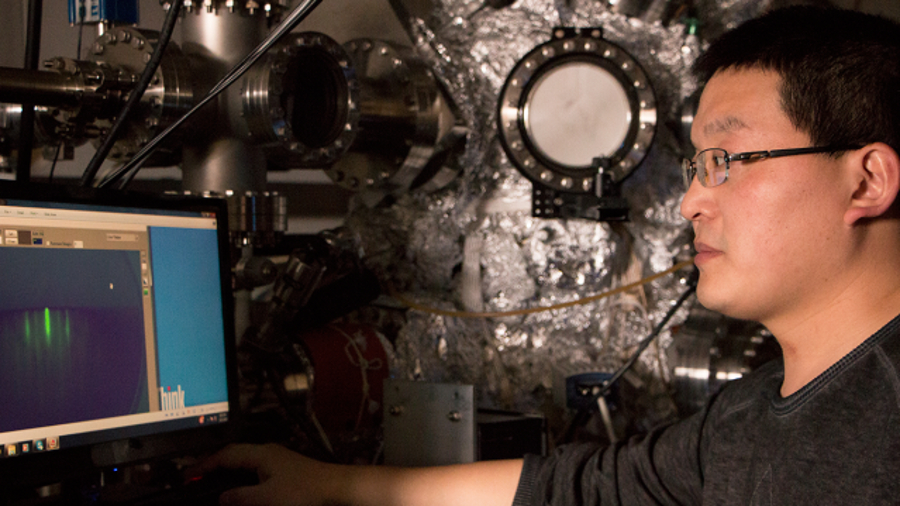Laptops that produce heat might soon be a thing of the past
Topological insulators could revolutionize laptops

As we all know, laptops can get pretty warm – particularly those with powerful components crammed into as small a space as possible – but a new scientific breakthrough could see ultra-cool notebooks emerge in the future.
At a fundamental level, electrical resistance is what produces heat in notebook components. MIT postdoc Cui-Zu Chang and his colleagues at are working to create devices with components which have little resistance (or none at all) to the flow of electricity.
Thus these devices would produce far less heat, which could lead to all manner of breakthroughs in terms of less cooling, thinner notebooks, more powerful portables and generally more efficient computing.
Getting rid of resistance, so to speak, can be achieved using topological insulators – exceptionally thin materials with special properties, which let electrons flow freely across the surface, but not through the bulk of the material.
Scientist Chang has been working in this field for some time, and achieved a major breakthrough last year when switching to use vanadium to produce atomically thin layers of magnetic topological insulators.
This worked far more effectively than the chromium previously used, and offered only "very slight resistance" to current flowing, according to MIT. But now, with further refinement, the researchers have managed to achieve zero resistance to a current flowing lengthwise along the edge of their circuit.
Temperature trauma
The catch is that the sample circuit in question is operated at just 0.025 kelvins, which is, well, let's say it's well below bloody freezing (-273.125 degrees Celsius). So obviously, there's still a lot of work to be done before this sort of technology can be applied at normal temperatures, but theoretically that should eventually be possible.
Sign up for breaking news, reviews, opinion, top tech deals, and more.
Chang notes: "A signal entering this system can propagate a long distance without losing any of its energy. While presently it can only be realized at very low temperatures, there are indications that this can be raised."
As well as cool laptops, the breakthrough could have implications for quantum computing.
Chang further observed: "If you can realize this effect at room temperature, it will significantly change our life. You can use this kind of effect to develop quantum electronics including the quantum computer. In this kind of computer, there is minimal heating effect; the current flow is completely dissipationless; and you can also communicate over very long distance."
Incidentally, for those whose laptops are running hot, it's worth checking to see if your vents and fans are dusty, and giving them a clean if they are. Also be aware of what surface you're using the device on – make sure there's some clearance at the bottom of the device so the underside vents are getting air to breathe.
Image Credit: MIT
- Also check out: 10 best Ultrabooks 2016: top thin and light laptops reviewed
Darren is a freelancer writing news and features for TechRadar (and occasionally T3) across a broad range of computing topics including CPUs, GPUs, various other hardware, VPNs, antivirus and more. He has written about tech for the best part of three decades, and writes books in his spare time (his debut novel - 'I Know What You Did Last Supper' - was published by Hachette UK in 2013).